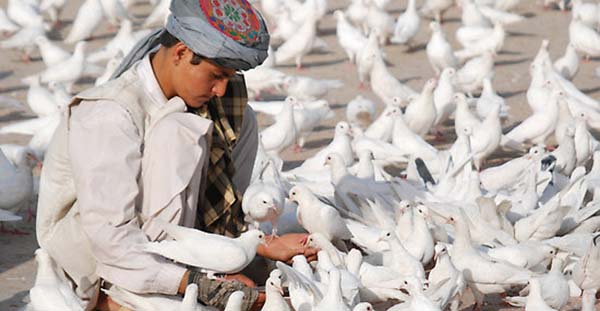KABUL - Despite recent optimism about a purposeful peace process with the Taliban, a senior member of the government's talk’s delegation said that negotiations were at a profound impasse after the new Taliban leadership promised to continue the armed struggle against the government and foreign coalition forces.
The official said that talks with the Taliban were deadlocked in the wake of Pakistan's continued backing of the group and its links with the al-Qaeda terrorist network.
He said that at the moment there is no indication of talks resuming and said that the Pakistani side has failed to abide by its commitments and act upon what they had promised regarding a comprehensive deal with the Taliban to end the violence.
"At the moment, there are no signs or indications to resume the talks. The Taliban declared war and announced allegiance with al-Qaeda. Pakistan and a new Taliban leadership are amongst the two important issues," Natiqi added.
Referring to the soured relations between Kabul and Islamabad, the European Union (EU) Special Representative and Head of the EU Delegation to Afghanistan, Ambassador Franz-Michael Mellbin, on Sunday said that the frustration and anger among Afghan officials is in some way understandable. However he called upon the two countries to resolve their disputes and disagreements by using diplomatic channels and negotiations.
The EU envoy warned against the breakdown in relations and said it was a mistake.
"I cannot believe that any such steps will be taken, and also it will be a great mistake – what is needed is for the two state actors to come together again. Currently there is a gap between the two state actors because of disappointments on how the cooperation has not proved enough results. I understand the frustration, the anger on the Afghan side. But in the end there is no other solution then for the two state actors to move together," Mellbin said.
After the reported death of Taliban's infamous leader Mullah Omar, the group appointed Mullah Akhter Mansour as successor to Omar. Following the announcement, al-Qaeda's top commander Ayman al Zawahiri also announced full support to the Taliban cause - in fighting the Afghan government and foreign troops.
Immediately following the announcement that Omar was dead, the group's supporters also staged public meetings in various regions of Pakistan - a move aimed to curb differences amongst Taliban factions over the appointment of the new leader. However, such developments apparently scuppered any idea of a second round of talks.
Pakistan was the expected venue for the second round of peace talks between the Afghan government delegation and the Taliban - where Afghan officials had hoped to present a ceasefire proposal.
Since then, there has been rising tension between Kabul and Islamabad, especially in the wake of a barrage of deadly attacks against mostly civilians in the Afghan capital.
In response to the attacks, Afghan President Ashraf Ghani addressed the nation and categorically blamed Pakistan for its involvement in supporting the Taliban and providing safe havens for terror groups.
Pakistan however hit back and summoned the Afghan Ambassador to Islamabad on two occasions in just five days over what it claims is a campaign against the country and over a reported mortar attack on Pakistani soldiers along the border.
In addition, a joint economic commission meeting between Afghanistan and Pakistan has also been delayed. This was scheduled to take place at the end of the month.
On Monday, the Pakistani Minister of Finance Mohammad Eshaq Dar said that the meeting of the joint economic commission has been postponed at the request of the Afghan government. (Tolonews)

